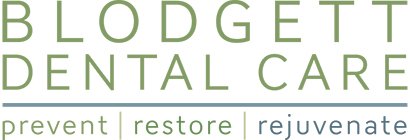What Is Holistic Medicine?

Years ago when I chose to become a dentist, I made a very conscious decision to focus on a different approach to patient care.
I felt that the best way for me to approach dentistry was through treating the whole patient as the mouth is truly the gateway to the whole body. This is called a holistic approach to medicine.
What do I mean by holistic medicine and what does that term mean? Holistic medicine is a form of healing that considers the whole person– body, mind, spirit, and emotions– in the quest for optimal health and wellness.
So if one follows the philosophies of holistic medicine, one can reach optimal health by achieving proper balance in life. That’s the primary goal of a holistic medicine practice,
Sounds great to me!
Holistic medicine practitioners believe that the whole person is made up of interdependent parts and if one part is not working properly, all the other parts will be affected. In this way, if people have physical, emotional, or spiritual imbalances in their lives, it can negatively affect their overall health.
A holistic doctor may use all forms of health care, from conventional medication to alternative therapies, to treat a patient. For example, when a person suffering from migraine headaches pays a visit to a holistic doctor, instead of only receiving medications, the doctor will likely take a look at all the potential factors that may be causing the person’s headaches, such as other health problems, diet and sleep habits, stress and personal problems, and preferred spiritual practices.
A treatment plan may involve drugs to relieve symptoms, but also lifestyle modifications to help prevent the headaches from recurring. The same could be said about the dental patient who comes into my office with a throbbing toothache.
Principles of Holistic Medicine
 Holistic medicine is based on the belief that support is a key to healing and a person is ultimately responsible for his or her own health and well-being. Other principles of holistic medicine include the beliefs that:
Holistic medicine is based on the belief that support is a key to healing and a person is ultimately responsible for his or her own health and well-being. Other principles of holistic medicine include the beliefs that:
- All people have innate healing powers.
- The patient is a person, not a disease.
- Healing requires a team approach involving the patient and supportive health care practitioners, addressing all aspects of a person’s life using a variety of healthcare practices.
- Treatment involves fixing the cause of the condition, not just alleviating the symptoms.
Holistic Medicine: Types of Treatments
Holistic practitioners use a variety of treatment techniques to help their patients take responsibility for their own well-being and achieve optimal health. Depending on the practitioner’s training, these may include:
- Patient education on lifestyle changes and self-care to promote wellness. This may include diet, exercise, counseling, spiritual practices, and more.
- Complementary and alternative therapies such as acupuncture, chiropractic care, homeopathy, massage therapy, naturopathy, and others.
- Western medications and surgical procedures.
Choosing a Holistic Practitioner
Practitioners of holistic medicine may include medical doctors, doctors of osteopathy, naturopathic doctors, chiropractors, dentists, and homeopathic doctors.
When choosing a holistic provider, keep these tips in mind:
Find the Right Practitioner
As with all professionals, there are those who are passionate about their profession and those who just think of it as a job. Before choosing a doctor who specializes in holistic medicine, get a recommendation from someone you trust, or contact a credible health organization and ask for a recommendation.
Do Your Homework
When selecting a holistic doctor, find out as much as you can about that person’s training, experience, specialty, and association with professional organizations and hospital affiliations. Is he or she board certified in medicine by a credible medical board? Also, consider the doctor’s treatment philosophy. Is it similar to your own views?
Ask Yourself, “How Do I Feel?”
Consider how comfortable you are with the provider. Does he or she make you feel at ease? Is the provider respectful of your concerns and beliefs? Are they more interested in your goals or their own agenda? Remember, holistic medicine requires a team approach, involving you and the provider. Make sure you feel comfortable and respected. And then ask yourself if the practitioner is someone you’re truly looking forward to working with.
Slowing Down & Taking Time
To gain a full understanding of you as a person, a holistic medicine practitioner will need to spend time with you. And that doesn’t mean a quick 10-15 minute appointment provided by many traditional doctors. Choose a provider who will spend enough time with you so that he or she can gain a full understanding of your needs.
Are You Being Asked the Right Questions?
In order to be understood as a whole person and not just a disease, be prepared to answer lots of questions about your diet, exercise, sleep habits, how you feel emotionally, your religious beliefs and practices, close relationships, and more.
If questions like these are not being asked by the provider, he or she may not be truly holistically-minded.
Treatment Options
When determining a treatment approach, does the wellness plan go beyond pills? Make sure the practitioner examines all lifestyle factors, along with medical factors that might be contributing to your illness.
My Final Thoughts
Doing things the way they were done for years, out of sheer habit, is rarely a good idea. And when it comes to a field like dentistry, and health care on a whole, we are constantly finding new and better ways to care for our patients. Science is making breakthroughs that are supporting the need to consistently take a holistic approach to healthcare.
At Blodgett Dental Care, we believe that it is a privilege to serve you. We will help you make the best decisions considering your entire health and we continue to approach you and your oral health in a way that encompasses a holistic approach.
Read Also
Mouthwash Is Bad For You: 4 Better Alternatives
Mouthwash Is Bad For You: 4 Better Alternatives [Updated 5/25/2024]Did you know that Listerine was once marketed as a surgical antiseptic and powerful floor cleaner? What you don’t know about mouthwash might surprise you. Especially when it comes to your dental...
Blodgett Dental Care Embodies Humanistic Dentistry
Blodgett Dental Care Embodies Humanistic Dentistry Dentistry has become “green washed” with terms that are now meaningless. Practically every dental practice is using terms such as “holistic”, “biological”, “functional”, and “integrative” to capture clicks with their...
Toxic Tuesday: Wisdom Tooth Extractions and Breast Cancer
The Connection Between Wisdom Tooth Extractions and Breast Cancer Wisdom teeth are extracted in the United States at a rate of more than 10 million every year! But what are the consequences to your health when the extraction sites do not heal properly? Today’s story...




